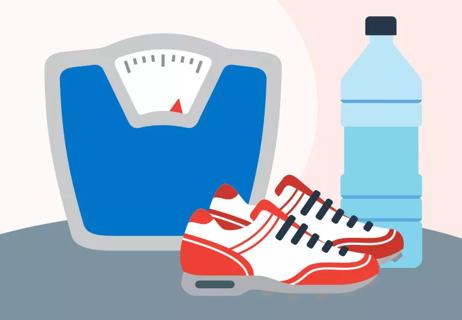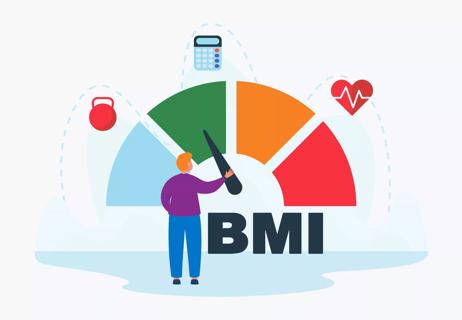Focus less on weight and more on healthy eating and exercise

Chubby cheeks are adorably pinch-worthy on babies. But when chubby babies become kids and adolescents with excess weight, they may be at risk for a lifetime of weight and health challenges.
Advertisement
Cleveland Clinic is a non-profit academic medical center. Advertising on our site helps support our mission. We do not endorse non-Cleveland Clinic products or services. Policy
“Kids who struggle with their weight in childhood are more at risk for all of the chronic medical conditions that overweight adults are prone to – like type 2 diabetes, high blood pressure, heart disease and stroke,” says nurse practitioner Jennifer Brubaker, PhD, FNP-BC. She’s part of the multidisciplinary team in the Cleveland Clinic’s BeWell Kids Clinic for children with obesity and associated issues.
Nearly one in five children in the U.S. has obesity, according to the Centers for Disease Control and Prevention. “It’s one of the greatest challenges our kids face today, because in general they’re doing less physical activity and are exposed to a variety of unhealthy options, like junk/processed food and excessive screen time,” Brubaker says.
If your child has overweight, you assume an important role in helping them establish healthier habits that will carry into adulthood.
The most effective approach to doing this, according to Brubaker, is one that focuses on physical and mental health.
Leading by example and encouraging small changes to the behaviors that contribute to a child’s unhealthy behaviors can get them on the right track.
Evaluating whether a child who’s still growing needs to lose weight can be confusing and thus should be left to a professional.
Advertisement
“Children should gain weight as they’re growing and getting taller,” Brubaker explains. “The question is, is their weight gain proportionate to their height gain?”
During annual well visits, your primary care provider will determine if your child’s BMI percentile — which takes into account the fact that kids grow at different rates depending on their age and sex – falls within a healthy range (between the 5th and 85th percentile).
But weight and BMI are only part of the equation. “We’re assessing general health, and there are a lot of factors that go into that, including diet and lifestyle,” she says.
For children who have overweight, Brubaker says she tends to steer away from giving them specific weight loss goals. “It’s really about the healthy behavior changes around weight,” she says. “I would rather have a patient come in and tell me, ‘I’m exercising five times a week,’ than say, ‘I lost five pounds.’”
Here are five ways you can help encourage those healthy behavior changes:
Advertisement
Learn more about our editorial process.
Advertisement

Having obesity brings long-term health risks no matter your fitness level

They’re legit health conditions, and not entirely in your control

Three tips for encouraging a healthy weight

Bleeding is a risk and warrants taking care, but the reward of this lifesaving medication is great

Severe and debilitating headaches can affect the quality of your child’s life

Type 2 diabetes isn’t inevitable with these dietary changes

Applying a hot or cold compress can help with pain